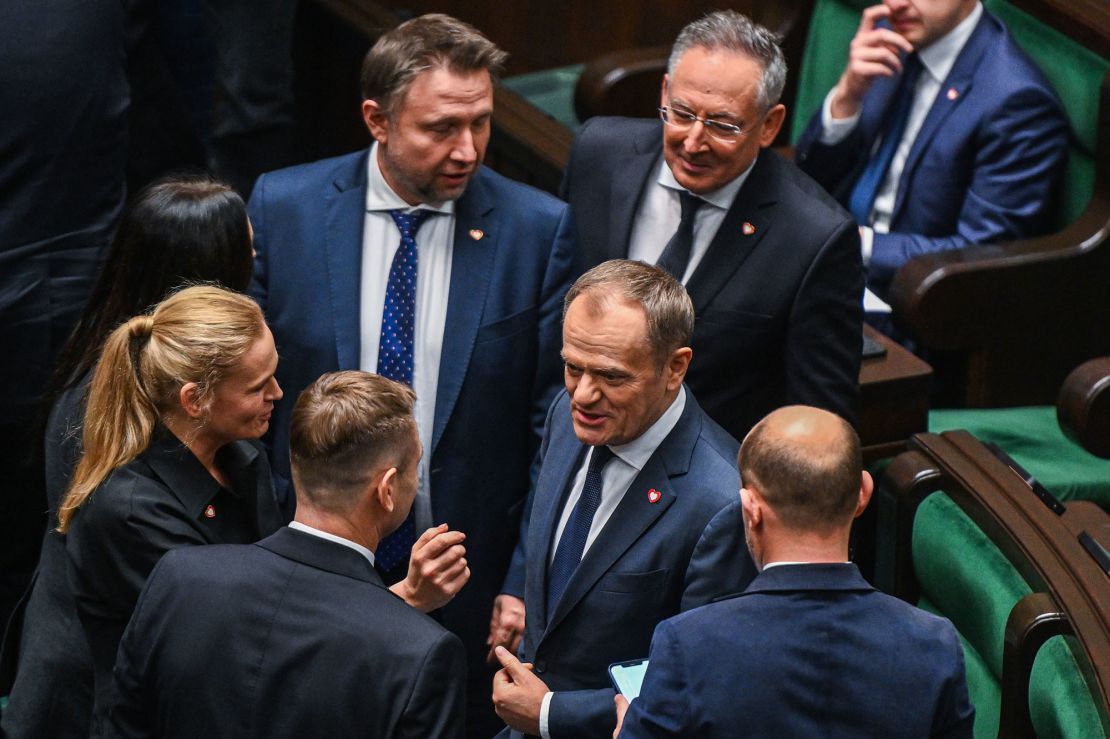A wave of conservatism has pummeled Europe for the last decade. First, it swept Viktor Orbán to power in Hungary. Then, Greece and Italy got caught in the riptide. Spain buoyed itself with Alberto Núñez Feijóo. And alas, Mateusz Morawiecki surfed to the helm of Poland in 2017.
Wealth inequality, Muslim immigrants, and globalization can all be credited for stoking the rise of right-wing extremism across Europe. This shift has had insurmountable consequences for Europe’s democratic institutions. Journalist Jan M. Olsen writes that in the past five years, “democratic rule in 17 [European] countries has eroded.” Take Poland, for example: 34 years after the fall of communism, the nationalist, conservative Law and Justice (PiS) party was elected. Prime Minister Beata Szydło, and later Morawiecki, filled the Constitutional Court with right-wing judges, took control of state media, and enacted the total outlaw of abortion. While the far-right wave has submerged Europe for much of the last decade, the tides may finally be receding.
On October 15, parliamentary elections took place in Poland to decide the next political majority in the Sejm, or Polish parliament; the leader of the majority party or coalition would become the new Prime Minister of the Central European nation. The incumbent PiS won 35.4 percent of the vote, while the centrist Civic Coalition Party received 30.7 percent, the center-right Third Way Party received 14.4 percent, and the Left Party 8.6 percent. Although the PiS won a plurality of the vote, it was not enough to obtain a majority in the 460-member Sejm. Seeing an opportunity for national redirection, the Civic Coalition, Third Way, and Left Party agreed to form a coalition government that would overpower the PiS. Its leader is former Polish Prime Minister and European Council President, Donald Tusk. Many felt relieved—the PiS was out. However, Poland has been stuck at sea for so long that swimming to shore will not be that simple.
Although the new tripartite of opposition parties assembled a coalition, bridging their ideological differences will be a wholly different struggle. Civic skews centrist but is known as a liberal force in Poland, as it has close ties with Brussels and the European Union. Third Way is a joint center-right party between the agrarian Polish People’s Party (PSL) and Poland 2050. Lastly, the Left is a socialist democratic coalition. Although the three groups formed a coalition government, they are unified in nothing but “their distaste for PiS.” For example, the traditional Third Way Party is anti-abortion. This will cause squabbles with the Civic Coalition and Left Party, who have vowed to legalize abortions until the end of the first trimester, or even longer. Tensions like these pose an immense challenge for the coalition. Deutsche Welle further predicts that the legalization of abortion is “long-anticipated” by the public, but compromises to maintain the coalition may prevent its materialization. Evidently, Poles removed the PiS in hopes that the opposition would return the nation to its liberal democratic roots. If little meaningful legislation is passed, it will severely damage the reputation of the new government, and distaste toward the new coalition could easily facilitate the return of the PiS.
Moreover, the return of the PiS would be a dire concern for the nation given the party’s appetite for Polexit, or Poland’s exit from the European Union. A broadly unwise economic decision, Polexit would be especially harmful due to its spillover effects on the Russia-Ukraine War, considering Poland’s 332-mile border with Ukraine. An exit from the EU would put the security of Poland, and Europe at large, at risk should Russia decide to advance deeper into Central Europe. Without the economic and military support of its European allies, Poland would likely be unable to defend itself against Moscovian aggression, and a Russian presence deeper into the continent spells danger for the rest of Europe. Although the United States cozied up to the PiS and offered Warsaw a $288.6 million package to avert the Russian threat, Barbara von Ow-Freytag, a board member at the Prague Civil Society Center, remarks that Poland must rely more on its European brethren for security. This is because European unity threatens Putin’s war that thrives amid dysfunction on the continent. So, it is critical that Poland remains with Brussels to safeguard its security and that of the rest of Europe. But the nationalist PiS, which is in an anti-EU bloc with Hungary and Slovakia, would not allow for this should it return to power. The vulnerability of the new coalition not only holds the potential to harm its own reputation but also leaves everyday Poles—and the entire European community—in harm’s way.
Poland may foreshadow the next decade of European politics: The victory of the new coalition offered the Poles a life raft, but they still need to find a way to shore. The new challenge is to rule Poland as one. The Civic Coalition, Third Way, and Left Party are in consensus to repeal the nationalist policies of the PiS by, for example, totally dismantling Poland’s state-run media and restoring ties with the EU. However, the coalition must find commonalities beyond a shared hatred for the PiS. What is their adhesive?
The direction of Poland remains uncertain. Can we expect a standstill in Polish domestic politics or concessions by the coalition in the name of the republic? Either fate may diminish the stature of the opposition parties and bolster the PiS’s clout. Because of this, I believe that Poland’s new coalition must boldly renew the nation. Find common ground. Rely on minority voices that were ousted—and embolden them. Sacrifice—and do so to maintain the unity of the coalition. Often, our similarities are more than our differences. Tusk and the coalition: Embody this, and strengthen the national community. Poles said “Nie” (No) to the PiS; the coalition must say “Tak” (Yes) to a brave new vision of Poland.
